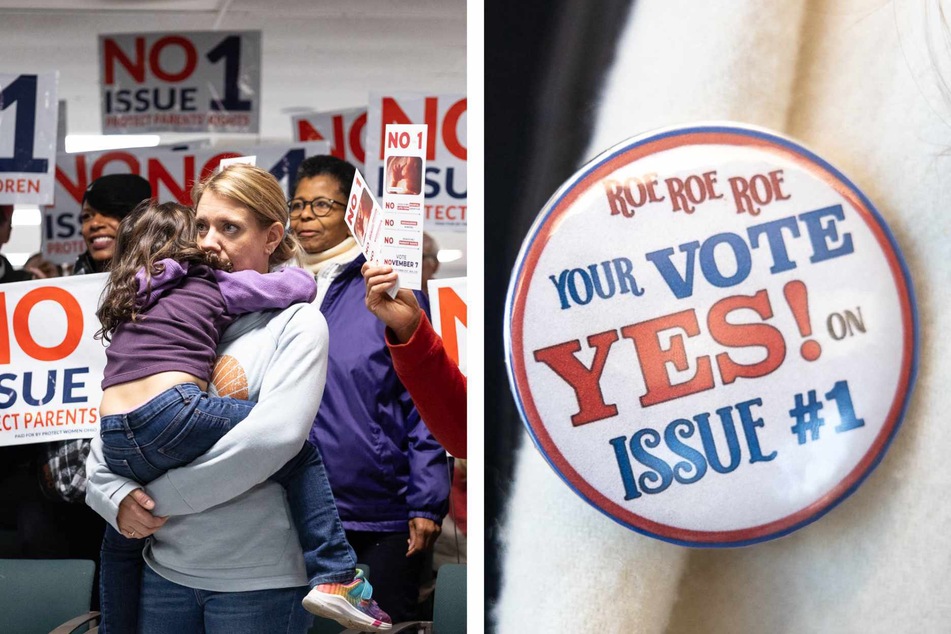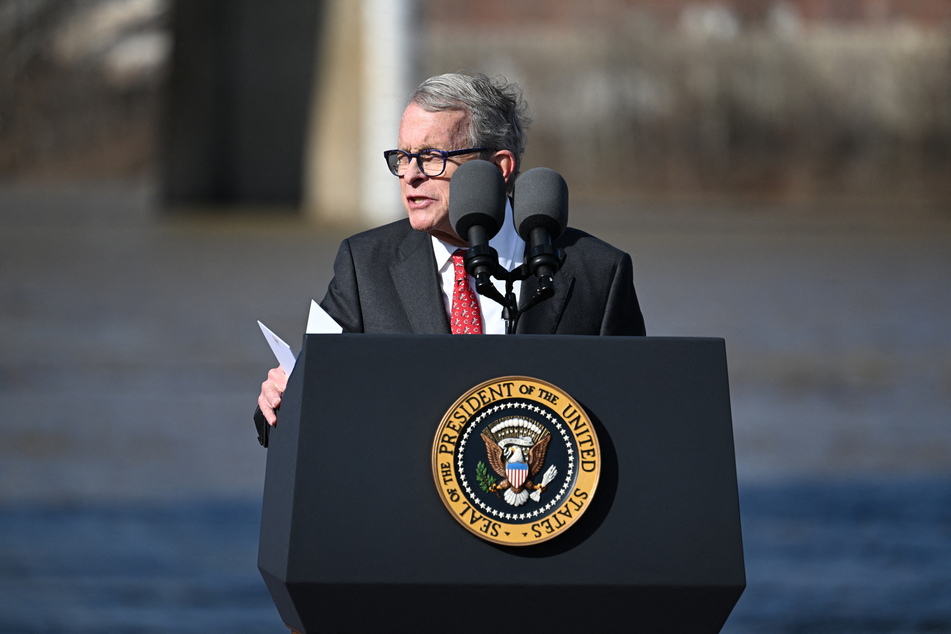Ohio votes in latest post-Roe abortion referendum
Columbus, Ohio - Ohio voters on Tuesday are choosing whether to include abortion rights in the state constitution, an issue likely to dominate next year's presidential race.

As polls opened at 6:30 AM, a line of people had already formed outside a voting station at Northwest Christian Church in the Midwestern state's capital, Columbus.
Erin, a 45-year-old who works in a brewery and preferred not to give her full name, noted how the two questions on the ballot – Ohio is also voting on legalizing marijuana – are issues she feels "very passionately about."
"We need to show up," she said, and "put in our votes for these important issues."
With the 2024 election looming, America's political watchers have their eyes on Ohio, where activists on either side of the reproductive rights issue have waged a fierce, multi-million-dollar campaign.
Tuesday's vote comes 17 months after the Supreme Court struck down the national right to abortion, paving the way for some states to completely outlaw the practice, even in cases of rape or incest.
In Ohio, the reversal of the landmark Roe vs Wade decision triggered a state law that would ban all abortions after a heartbeat is detected in the womb – usually around six weeks of gestation before many people even know they are pregnant.
The law is currently suspended as it winds its way through legal challenges, meaning that for now, it is still possible to obtain an abortion in Ohio up to about 22 weeks of pregnancy.
But the law sparked a national outcry for the short time it was allowed to remain in effect last year when a 10-year-old rape survivor was forced to travel to neighboring Indiana for an abortion after being denied care at home.
Explaining Ohio's Tuesday referendum vote and why it matters

A "yes" vote victory on Ohio's referendum, known as Issue 1, would enshrine in Ohio's constitution the right for residents to "make and carry out one's own reproductive decisions," including on abortion.
It would however allow abortions to be prohibited after "fetal viability" – when a fetus can survive on its own outside the womb – unless a doctor believes a pregnant patient's life or health is in danger.
An August measure that would have made Ohio constitutional amendments harder put up for a vote in direct response to the looming abortion referendum and was soundly defeated.
Many conservative voters in the country and their elected representatives have expressed reservations about how far restrictions on abortion have gone after the overturning of Roe. Over the past year, multiple states including California, Kansas, and Kentucky voted to preserve abortion rights or voted down efforts to restrict them.
Abortion protection efforts now face a huge test in Ohio, a state former president Donald Trump won in both 2016 and 2020 as its voters have drifted right.
Governor Mike DeWine has warned that the ballot language would open the door to abortions at "any time during the pregnancy," with the possibility of minors obtaining abortions without their parents' knowledge. The "Yes" camp has called that kind of framing "disinformation."
Abortion is also on the ballot in other states. Conservative-leaning Kentucky votes for governor Tuesday, with incumbent Democrat Andy Beshear having made abortion rights a key issue in his battle against Republican Daniel Cameron.
In Virginia, Republicans hope a win in legislative races will allow them to tighten abortion restrictions.
Cover photo: Collage: MEGAN JELINGER/AFP & MEGAN JELINGER/AFP

